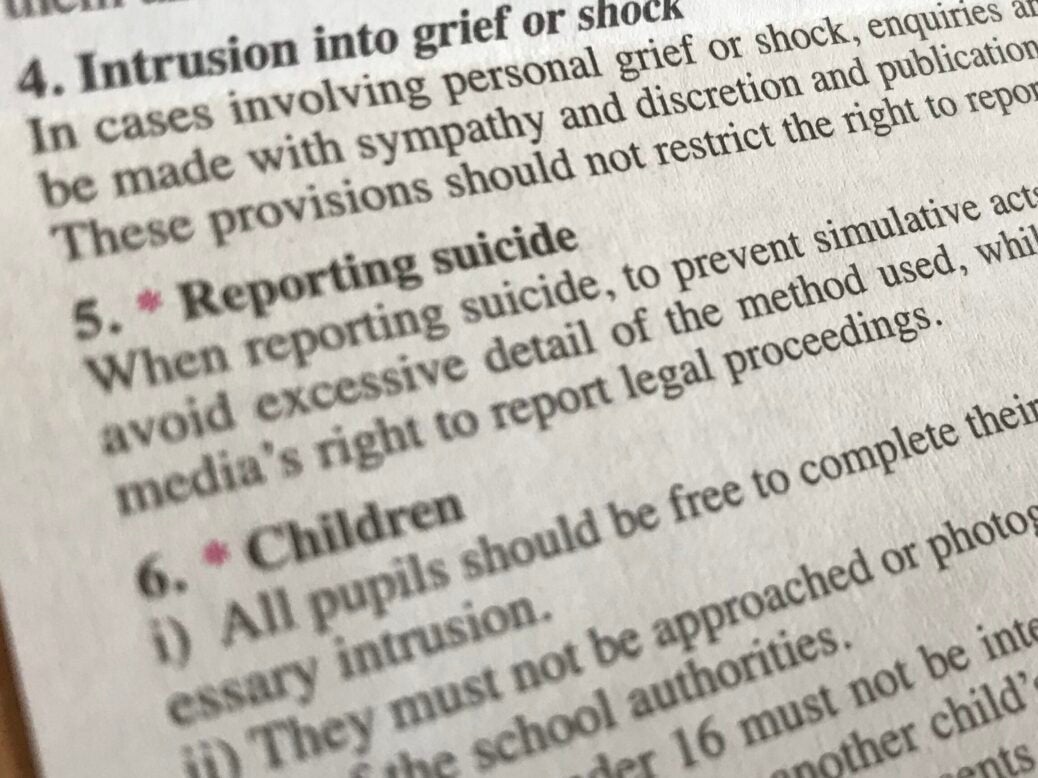
Top editors have rejected a request to change the Editors’ Code of Practice – the standards to which most UK news titles are held – so that publications could be sanctioned for pulling articles without explanation.
US blogger Peter Heimlich asked the Editors’ Code of Practice Committee in January to consider “plugging” a hole in the code which allows publishers to delete online news articles “with impunity”.
Heimlich made the suggestion to the Independent Press Standards Organisation after complaining that three articles published by its members over the 12 months from January 2018, which he said had contained problems or inaccuracies, were deleted with no explanation.
Heimlich is the son of the late Dr Henry Heimlich, after whom the Heimlich manoeuvre is named. He claims his father did not in fact invent the anti-choking technique and runs a blog debunking medical fraud.
The Editors’ Code Committee, which rules on the guidelines for publishers, met in London on 15 May and, after a “detailed discussion”, decided not to formally address the circumstances in which publications can delete stories.
“The committee concluded that no change was desirable as editors must be free to choose which stories to publish, and that must also include the freedom not to publish or to delete stories,” minutes of the meeting said.
“The committee noted that deleting a story did not mean that IPSO could not investigate a complaint against it.”
Industry bosses present at the meeting included Daily Telegraph editor Chris Evans, Daily Express editor Gary Jones, Metro editor Ted Young, Newsquest Scotland editor-in-chief Donald Martin, Nottingham Post editor Mike Sassi, IPSO chairman Sir Alan Moses and chief executive Matt Tee.
Heimlich told Press Gazette: “Obviously the committee’s decision puts the authority of editors above the public’s right to know. Plus it provides a perverse incentive to ‘disappear’ entire articles rather than to publish corrections (which have to be acknowledged).
“But the decision also leaves open the door to countless opportunities for misconduct.
“You’re an embarrassed editor because a reporter got a story wrong? Just hit the ‘delete’ key. You’re a big advertiser in a newspaper that runs a story you don’t like? Tell your sales rep that you’re pulling your account and watch the article disappear. You’re a powerful politician and a local paper runs a critical story about you? A quick call to an editor could send it ‘down the memory hole’ and none the wiser.”
Heimlich runs a blog called The Sidebar and a website, Med Fraud, about his work debunking fraud in the medical industry.
He has described his father, who died in late 2016, as a “spectacular con man” who invented nothing “but his own mythology”.
The three articles which relate to his area of research, and which he says were deleted without explanation, are:
- Mail Online: Ed Byrne saves choking fan’s life, 2 January 2018
- Northampton Chronicle & Echo: Northampton care home staff save residents’ life after he started choking, 15 June 2018
- Milton Keynes Citizen: Milton Keynes man’s device saves 11 people from choking to death, 17 January 2019
At the same meeting, the Code Committee also rejected calls to add a public interest defence to Clause 4 (Intrusion into grief and shock) of the Editors’ Code, to prohibit social media reports of initial court appearances, or condemn the word “Asian” being used in stories about sexual exploitation by grooming gangs because of the perceived negative impact on Asian communities who are not implicated in the crimes.
Email pged@pressgazette.co.uk to point out mistakes, provide story tips or send in a letter for publication on our "Letters Page" blog
